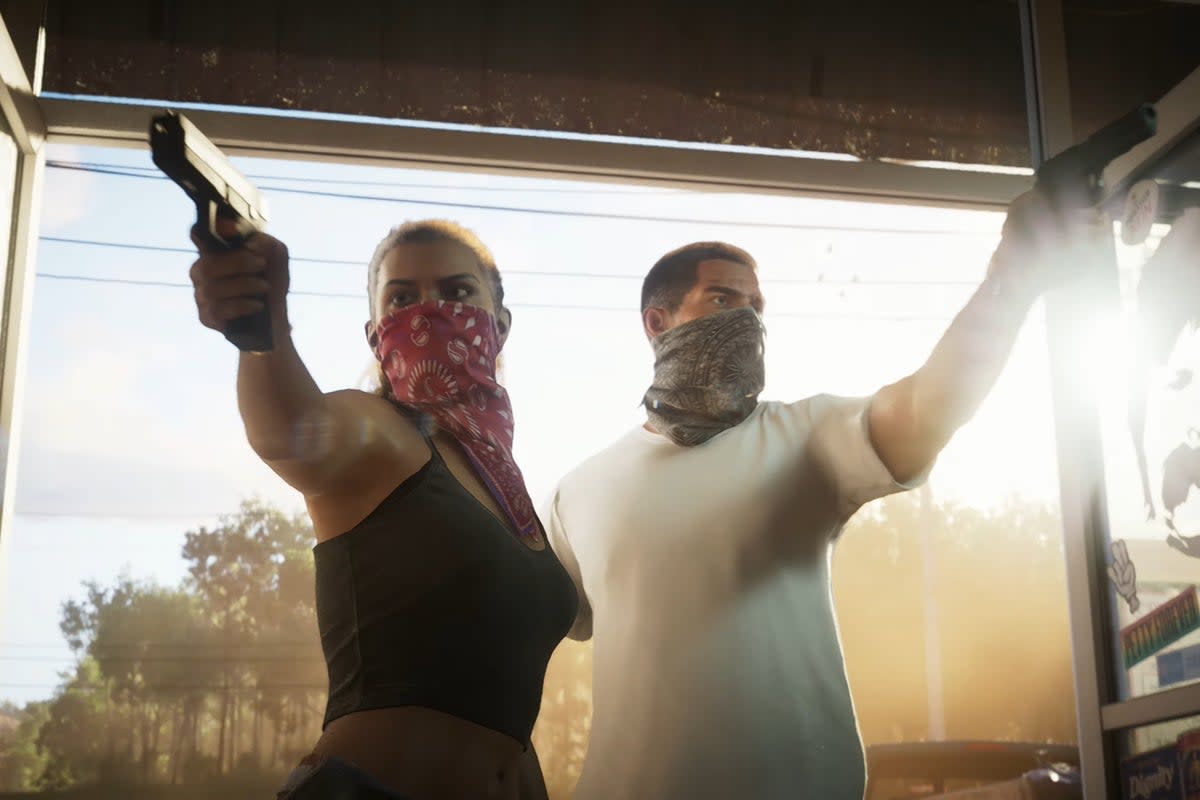Voices: I’m no prude, but GTA 6 should give us cause for concern

How do you follow up a video game like Grand Theft Auto V? Since its release in 2013, the crime-and-car-theft game has sold nearly 200 million copies worldwide. Critical acclaim has been just as fulsome: the game’s vast, explorable open world was hailed as a high point for video game design. But the feverish wait for a sequel has stretched to over a decade. With GTA VI only now finally unveiled by game studio Rockstar via a stunning trailer, we can expect months upon months of manic anticipation, from advertisers and fans alike.
For all GTA’s shiny accolades, though, controversy has always tailed the franchise like a smut-seeking missile. The original GTA weathered claims that its low-resolution criminal violence would corrupt impressionable youths (an outrage that was in fact masterminded by publicist and child sex offender Max Clifford in a successful effort to drum up sales). Whether it was racial conflict (GTA: Vice City), explicit sex (GTA: San Andreas), or torture and drunk driving (GTA IV), each subsequent release seemed to usher in a new wave of opprobrium. To be clear: much of the backlash surrounding GTA has been tantamount to moral panic. Studies have refuted the idea that playing violent video games has any correlation with violent or antisocial behaviour. But that doesn’t mean the franchise, and players, shouldn’t take a long, hard look at themselves before the release of GTA VI.
Part of the appeal of GTA – the core selling point, in fact – is the idea of freedom. Yes, there is a long and involved storyline, but the game’s fundamental hook lies in the ability to navigate the city at your own whims. Fancy speeding over a cliff? Sure. Stealing a car? Go for it. Getting in a shootout with police? Fill your law-flouting boots. The problem is, the possibilities do not end there. Some other things your character can do on GTA V, at the player’s own volition: proposition and murder a sex worker; attempt to access a website for child pornography (and get caught in a police sting); carry out a mass shooting.
Now, this might not mean anything. It’s not an endorsement of real-life violence; cherubic teenagers aren’t being turned onto a life of crime because of it. But the fact that the game can be used in this way obviously raises contravenes the boundaries of sensitivity and good taste.
GTA has always fancied itself as a satire – a kind of wonky mirror warping the sexism, violence and capitalist excess of contemporary US culture into crude, cartoonish extremity. It is a satire – just not a very incisive one. And because this is a game that places you in the shoes of a gun-toting, murderous criminal, the lampoon never truly shakes off the ring of affirmation. It’s a matter of having one’s cake and eating it – or in this instance, having one’s cake and violently terrorising the erotic dancer who was concealed inside. If the franchise is to truly evolve with GTA 6, the satire has to show some keener insight, and seek to do more than just scandalise and hyperbolise.
If we are to scrutinise GTA as a work of art – entertainment first and foremost, but art nonetheless – then the ethics of allowing players to simulate depraved behaviours can’t be dismissed out of hand. It’s part of the text. If, while watching The Godfather, you were always given the option to insert a bonus scene in which Michael Corleone walks into a McDonalds and starts hurling machetes at service staff, it’s fair to say that the film’s reputation would be somewhat different. Just because GTA does not reward or necessitate evil actions does not mean that it should escape scrutiny for allowing players to participate in it. GTA has always danced around in the very coarsest recesses of the human psyche. Maybe it doesn’t have to anymore.

